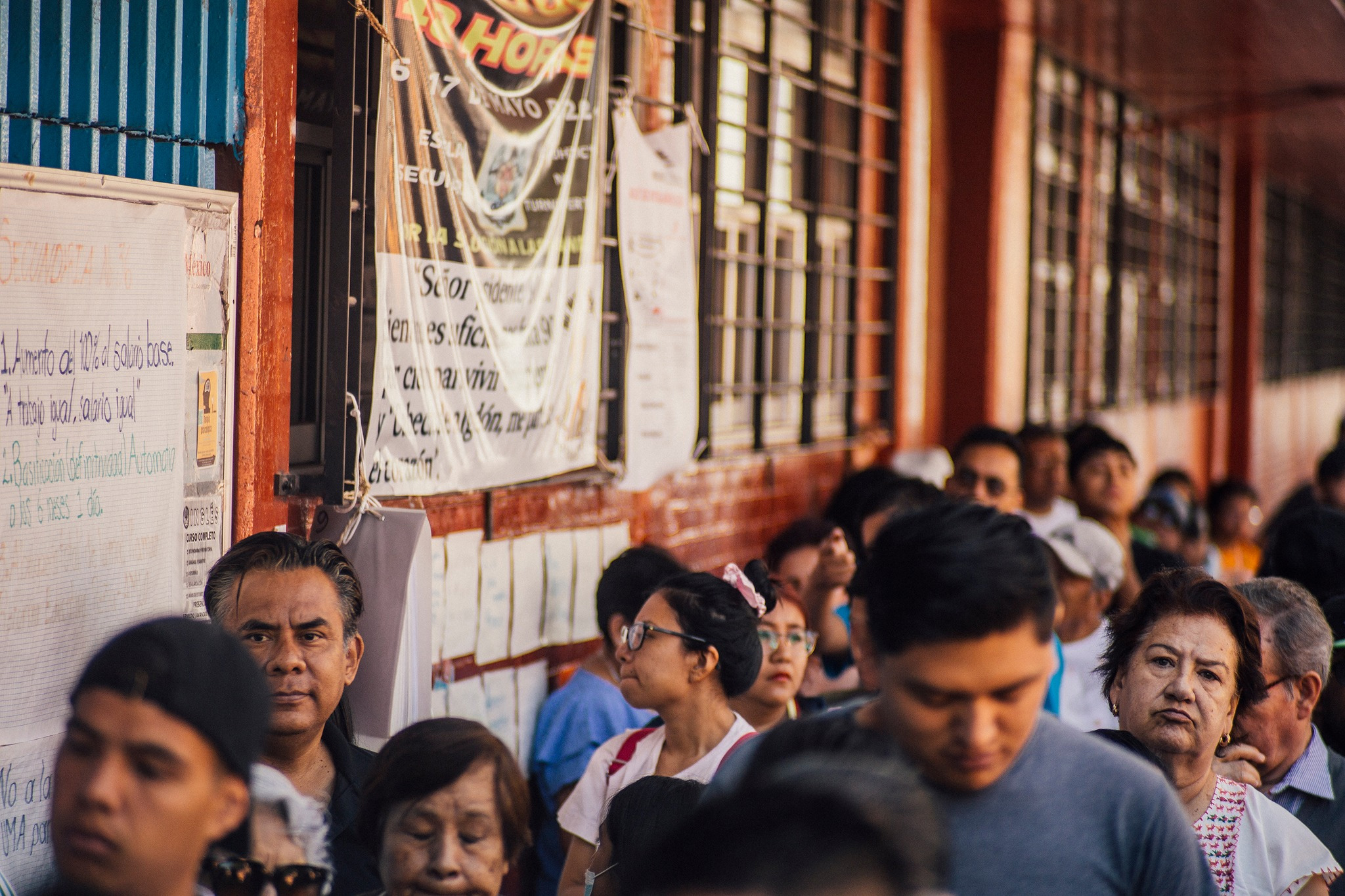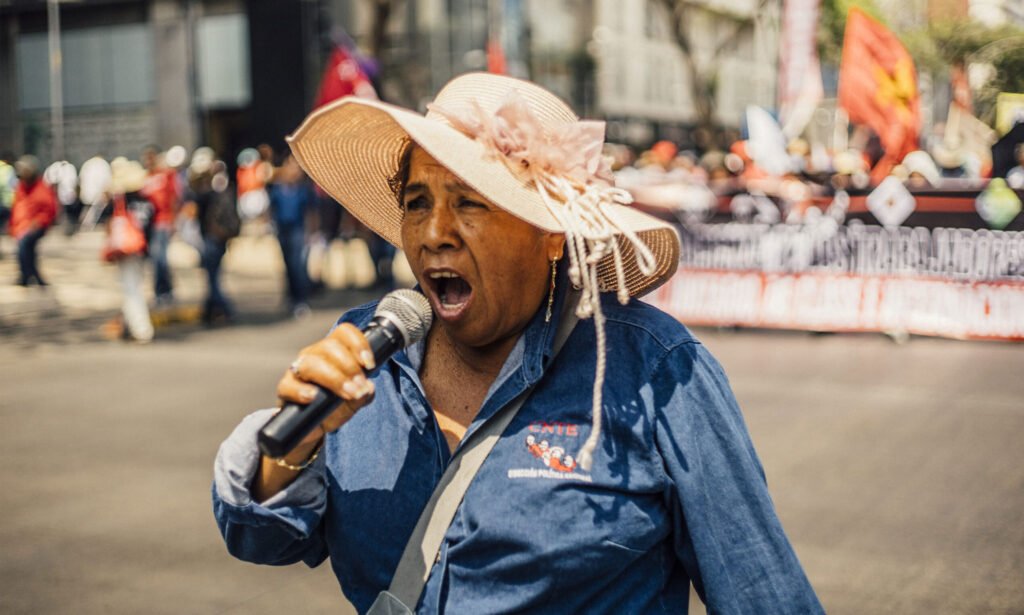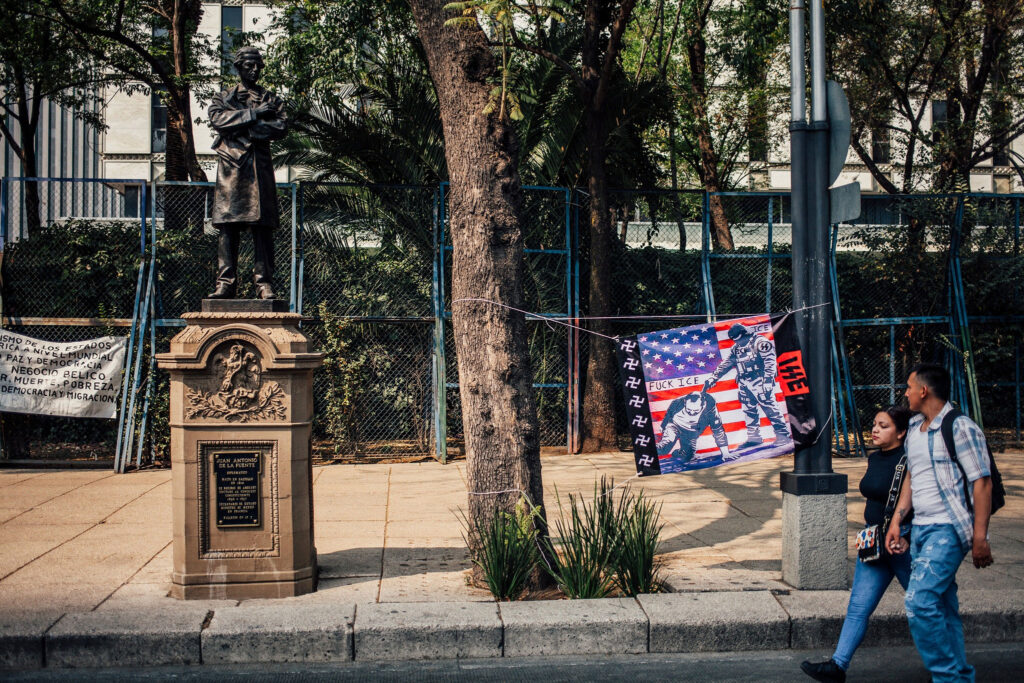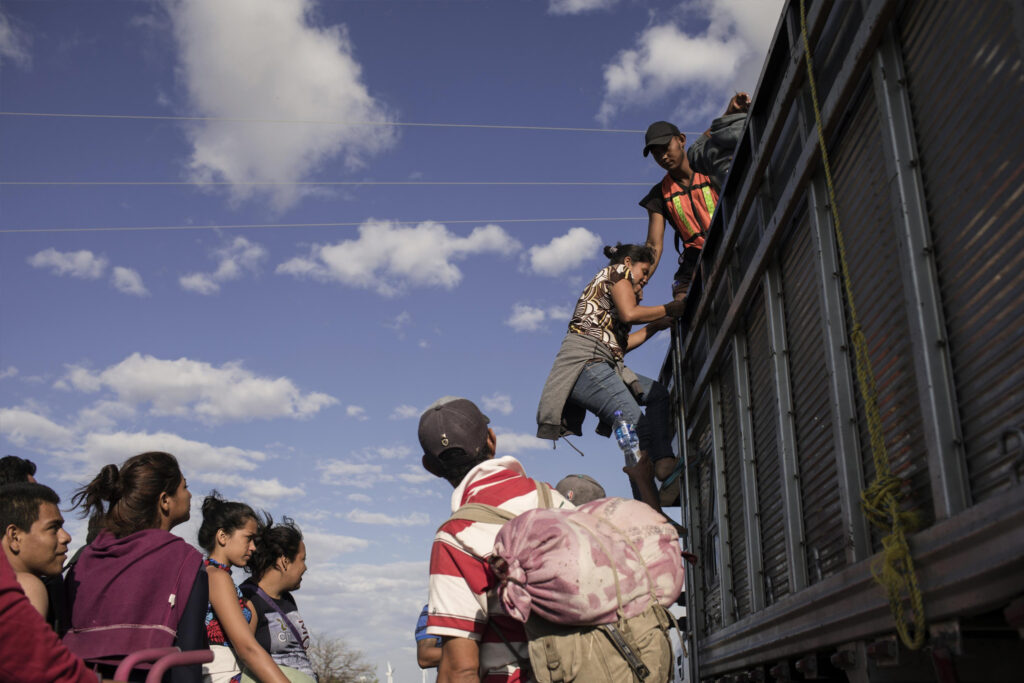An Electoral Reform That Democratizes Public Life
This editorial by Abraham Nuncio appeared in the August 21, 2025 edition of La Jornada, Mexico’s premier left wing daily newspaper. The views expressed in this article are the author’s own and do not necessarily reflect those of the Mexico Solidarity Project.
Any electoral reform that truly seeks to democratize public life in Mexico would be based on two fundamental aspects: the democratization of political parties and also the democratization of electoral campaigns.
Political parties are considered in our legislation to be bodies of public interest. Their leaders, however, lead them in an arbitrary, group-based, and undemocratic manner.
In these, debate, as the basis for decision-making, is practically nonexistent, or if it exists, it is outside the collective body, which can be none other than the assembly convened institutionally for the purpose of debating the major national or partisan issues on which the membership must express its opinion.
This is usually not the case, and party members are only called upon to carry out decisions made by their leadership.
Currently, political parties focus their mobilization efforts on election campaigns. They neither promote nor support social struggles that seek to resolve common problems, nor do they speak out about these issues or those of the national, state, or municipal situation.
They don’t defend causes. They transfer everything to the authority, whether or not it comes from their ranks. And their priority tasks are organizing the population to vote and raising funds for election campaigns.
There is no politician or leader of any party who doesn’t demand democratic, transparent, and accountable processes, but not on their own turf.
Business leaders, union leaders, clergy, the media (their editorialists, commentators, analysts), educators—all demand the same thing, but they don’t promote or practice it, and when the time comes, they even repress it.
Of course, it will be said, electoral reform cannot be expected to undo so much wrong. Those who assert this will be right, if past and present inertia continues. If such continuity is not what is desired, then the electoral reform planned by the government and its party will have to delve deeper into its premises and tectonics. It is illogical to expect from the opposition what they once announced they would do—be democratic and transparent—and then do the opposite.
The reform should ensure that the internal functioning of political parties is genuinely democratic. The money they receive is public. Are taxpayers ever informed about how that money is spent, both in their daily activities and in their electoral participation? Do we know about political training, educational, outreach, and cultural initiatives? Do they inform us how their decisions are made?
There are no regulations that compel them to do so, nor is there an impartial body that monitors their every move and task. If there were, at least voters would know, between one election campaign and the next, which parties most punctually fulfill what their fundamental documents, leaders, and members declare regarding their actions. They would also know what their substantive commitments are, with which social sectors they maintain ties of solidarity and support; how they have processed their decisions and, as mentioned, how they spend the money allocated to them. The current profile of political parties in Mexico viciously conceals this information from us.
Election campaigns, a servile copy of the American system in more than one way, are nothing more than propaganda bacchanals where parties spend according to the rules of the greatest possible secrecy. They usually use public funds legally entitled to them and funds obtained illicitly from hidden contributions from the wealthiest individuals (both legal and illegal businessmen) and from criminal administrative maneuvers, ranging from overpayments for public works and services to theft from the nation.
These statements are a simple summary of past experiences. Nothing is more fraught with criminal acts than an election campaign. The PRI dinners with Mexico’s richest men at the homes of Antonio Ortiz Mena and Lorenzo Zambrano (around 15 billion pesos were raised for Zedillo’s campaign); the monetary contributions from abroad (guess where) to Fox’s Coca-Cola Friends; the largest fine against the PAN for exceeding the campaign limit; and the receipt of unidentified private funds for Calderón’s campaign: 17 million pesos of the nearly 40 million received by all parties for various infractions.
In 2012, the parties fined the most (100 million pesos) were the PRI and PVEM for illicit financing (Monex) of Peña Nieto’s campaign. A similar scenario occurred in 2018 (more than 100 million pesos for the PRI and PVEM) for economic reasons. In 2024, the party fined the most was Morena. The reasons were: excessive campaign spending and campaigning linked to social programs in several states, as well as the use of advertising outside of permitted times.
Illegal financing comes from the wealthiest citizens. Their money often buys political influence and even influences on public policies, contracts, permits, licenses, and other economic advantages. We vote, and they choose.
Economic sanctions are useless and leave parties’ impunity intact. These types of sanctions should be counted in votes.
If electoral reform doesn’t transform the realities surrounding the internal workings of parties and electoral campaigns, the rest is mere embellishment.
-
CNTE Announces 72 Hour National Strike & March to Mexico City’s Zócalo
The class-conscious teachers union will also make “courtesy visits” to the embassies of countries who committed atrocities against Iran, to show their rejection of US imperialism.
-
Yet Another Mexican Citizen Dies in ICE Custody
The unidentified victim is the 9th Mexican citizen to have been killed in ICE detention since the beginning of 2025; this time in Adelanto, California.
-
Let’s Talk About Migration: Trumpist Persection
Millions of women who have endured unspeakable violence on their migration journey are now being persecuted in the United States by an extremely xenophobic and misogynistic government, led by Donald Trump,




